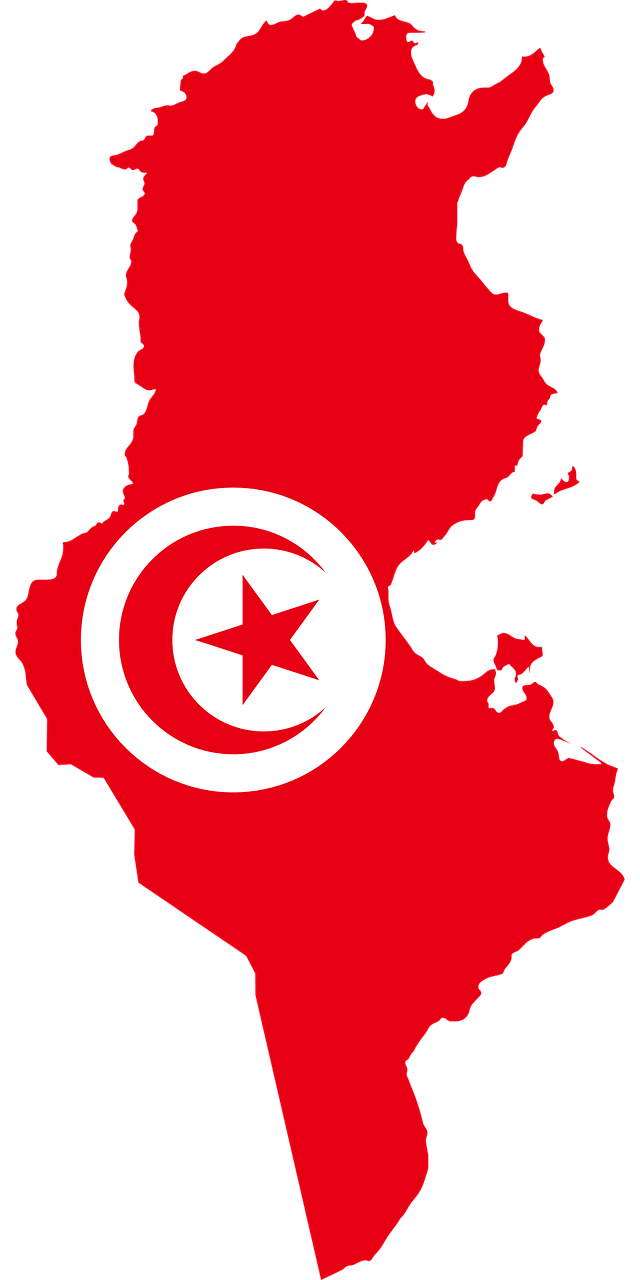Tunisia
Overview
Jewel of the Mediterranean
Tunisia, often referred to as the "Jewel of the Mediterranean," is a nation that seamlessly blends ancient history with modern aspirations. Located in North Africa, it boasts a diverse landscape that ranges from the shimmering Mediterranean coast to the vast stretches of the Sahara Desert, and from the fertile plains of its northern regions to the rugged Atlas Mountains.
Tunis, the capital, is a city where history and modernity coexist. The ancient ruins of Carthage stand as a testament to Tunisia's rich history, while the modern avenues and boulevards of Tunis reflect its contemporary aspirations. The medina of Tunis, a UNESCO World Heritage site, is a labyrinth of narrow alleys, bustling souks, and historic monuments. Beyond the capital, cities like Sidi Bou Said, with its blue and white architecture, and Djerba, with its pristine beaches and Jewish heritage, showcase the country's cultural diversity.
Tunisia's history is a tapestry of civilizations. From the ancient Phoenicians to the Romans, from the Arab dynasties to the Ottoman Empire, and from the French colonial period to its post-independence era, each phase has left an indelible mark on the nation's cultural, architectural, and societal landscape.

Key indicators

Population

GDP per capita

Nominal GDP

Purchasing Power Parity GDP

Main exports

Foreign direct investment

Stock market capitalization

GDP growth rate
- Economic Snapshot
- Business Environment
- Startup Ecosystem
- Infrastructure & Technology
- Opportunities & Challenges
- Cultural Insights
Tunisia's economy is diverse and has undergone significant transformation over the decades. Historically reliant on agriculture, especially olive oil production, the nation has successfully diversified into manufacturing, services, and tourism. Textiles, automotive components, and aerospace parts are among the key manufacturing exports, with European nations being major trade partners. The country's strategic location, at the crossroads of Europe, Africa, and the Middle East, enhances its trade potential.
Tourism has traditionally been a significant contributor to Tunisia's economy. From the ancient ruins of Carthage to the Mediterranean beaches, from the desert landscapes made famous by the "Star Wars" movies to the historic medinas of Tunis and Sousse, Tunisia offers a diverse range of attractions. The nation's commitment to sustainable and cultural tourism is evident in its preservation efforts and the promotion of eco-tourism initiatives.
Tourism is another pillar of Tanzania's economy. The nation's national parks, such as the Serengeti, Selous, and Tarangire, are world-renowned, drawing wildlife enthusiasts and adventure seekers from across the globe. The annual Great Migration, where millions of wildebeest and zebras traverse the Serengeti plains, is one of nature's most spectacular events. Add to this the cultural tourism of Zanzibar, the historical sites like the Olduvai Gorge, and the adventure tourism of Mount Kilimanjaro, and it's evident why Tanzania is a preferred destination for many.
Tunisia offers a conducive environment for business and investment. Over the years, the government has undertaken reforms to liberalize the economy, improve the business climate, and attract foreign investment. The establishment of industrial zones and technology parks, coupled with fiscal incentives, underscores Tunisia's commitment to fostering entrepreneurship and innovation.
The nation's workforce is one of its key assets. With a strong emphasis on education and skills development, Tunisia boasts a pool of skilled professionals, especially in sectors like information technology, engineering, and finance. The country's legal and regulatory framework, influenced by both civil law traditions and Islamic law, provides stability and protection for businesses and investors.
The nation's strategic location, with its access to landlocked countries in the region, enhances its trade potential. The port of Dar es Salaam, one of the largest in the region, is a gateway to East and Central Africa. Furthermore, Tanzania's membership in regional bodies like the East African Community (EAC) and the Southern African Development Community (SADC) offers it access to a larger market and collaborative opportunities.
Tunisia's startup ecosystem is vibrant and growing. The government's "Startup Act," introduced in 2018, offers a range of incentives for startups, from tax breaks to simplified administrative procedures. This has led to a surge in entrepreneurial activity, especially in sectors like fintech, agritech, renewable energy, and e-commerce.
Incubators, accelerators, and co-working spaces are playing a pivotal role in nurturing the startup culture. Collaboration between academia, industry, and government is fostering innovation, research, and development. Access to funding, while a challenge in the past, is improving, with venture capitalists and angel investors showing interest in Tunisian startups.
Collaboration is at the heart of this ecosystem. Universities, the private sector, and the government are coming together to foster a culture of innovation. Access to funding, mentorship programs, and market linkages are ensuring that startups not only take root but also thrive and scale.
Infrastructure development is at the forefront of Tanzania's growth strategy. Roads, railways, ports, and airports are receiving significant investments. The government's focus on enhancing digital infrastructure is evident in its push for greater internet connectivity and digital literacy. Mobile money platforms have revolutionized banking in Tanzania, offering financial services to those who were previously unbanked.
Tunisia's infrastructure is robust and has seen significant investments over the years. The road and rail networks are extensive, ensuring connectivity across the country. Ports like Tunis, Sfax, and Bizerte play a crucial role in the nation's trade. Tunisia's focus on technology and digital transformation is evident in its push for greater internet connectivity, e-governance initiatives, and the promotion of smart cities.
The nation is also making strides in the field of renewable energy. With abundant sunlight, solar energy projects are gaining momentum. Wind energy, given the country's coastal location, is another area of focus. These initiatives underscore Tunisia's commitment to sustainable development and reducing its carbon footprint.
Tunisia, with its strategic location, skilled workforce, and diverse economy, offers a plethora of opportunities. Sectors like renewable energy, information technology, agribusiness, and tourism are particularly promising. The government's focus on innovation, research, and development presents numerous avenues for collaboration and investment.
However, challenges persist. Political transitions and economic reforms, while necessary, have brought about uncertainties. Addressing issues related to bureaucracy, transparency, and governance remains a priority. But with challenges come opportunities. Tunisia's resilience, coupled with its vision for the future, makes it a compelling destination for investors and entrepreneurs.
However, challenges remain. Land ownership issues, bureaucratic hurdles, and infrastructural gaps need to be addressed. But with challenges come opportunities. The nation's youth, with their energy, talent, and aspirations, are its biggest asset, driving change and innovation.
-
-
Tunisia is a culturally diverse country with a rich history and heritage. The country is home to over 90% Arabs, 1% Berbers, and a small Jewish minority. The official language of Tunisia is Arabic, but French is also widely spoken.
-
Tunisians are generally friendly and welcoming. They are also known for their strong sense of community and family.
-
Some of the most important cultural traditions in Tunisia include:
-
Greetings: It is customary to greet people with a handshake and a greeting in their language. The most common greetings are "As-salamu alaykum" (Arabic) and "Bonjour" (French).
-
Hospitality: Tunisians are known for their hospitality. They often invite guests into their homes and offer them food and drinks. It is considered rude to refuse a Tunisian's hospitality.
-
Dressing: Tunisians dress in a variety of styles, depending on the occasion. However, it is important to dress modestly when visiting Tunisia. This means avoiding revealing clothing and dressing appropriately for the occasion.
-
Food: Tunisian food is delicious and diverse. Some of the most popular dishes include:
- Couscous: A semolina dish served with a variety of stews.
- Harissa: A spicy chili paste.
- Brik: A fried pastry filled with tuna, egg, and potatoes.
- Lablabi: A chickpea soup.
-
Music and dance: Tunisia has a vibrant music and dance culture. Some of the most popular Tunisian musical genres include malouf, chaabi, and andalous. Traditional Tunisian dance is characterized by its energetic and graceful movements.
-
Here are some tips for businesses and investors operating in Tunisia:
- Be respectful of Tunisian culture and traditions. This includes being respectful of traditional customs and beliefs.
- Be patient and understanding. Tunisians are generally relaxed and easy-going. It is important to be patient and understanding when doing business in Tunisia.
- Build relationships. Tunisians value personal relationships in business. It is important to build rapport with your Tunisian counterparts before getting down to business.
- Be ethical and responsible. Tunisians are looking for businesses that are ethical and responsible in their dealings.
-
-
Tanzanians are generally friendly and welcoming. They are also known for their strong sense of community and family.
-
Some of the most important cultural traditions in Tanzania include:
-
Greetings: It is customary to greet people with a handshake and a greeting in their language. The most common greetings are "Jambo" (Swahili) and "Habari" (Swahili).
-
Hospitality: Tanzanians are known for their hospitality. They often invite guests into their homes and offer them food and drinks. It is considered rude to refuse a Tanzanian's hospitality.
-
Dressing: Tanzanians dress in a variety of styles, depending on the occasion. However, it is important to dress respectfully when visiting Tanzania. This means avoiding revealing clothing and dressing appropriately for the occasion.
-
Food: Tanzanian food is delicious and diverse. Some of the most popular dishes include:
- Ugali: A starchy staple food made from cassava, plantain, or millet flour.
- Nyama choma: Grilled meat.
- Wali wa nazi: Rice cooked in coconut milk.
- Chapati: A type of flatbread.
-
Music and dance: Tanzania has a vibrant music and dance culture. Some of the most popular Tanzanian musical genres include bongo flava, taarab, and dansi. Traditional Tanzanian dance is characterized by its energetic and graceful movements.
-
Here are some tips for businesses and investors operating in Tanzania:
- Be respectful of Tanzanian culture and traditions. This includes being respectful of traditional customs and beliefs.
- Be patient and understanding. Tanzanians are generally relaxed and easy-going. It is important to be patient and understanding when doing business in Tanzania.
- Build relationships. Tanzanians value personal relationships in business. It is important to build rapport with your Tanzanian counterparts before getting down to business.
- Be ethical and responsible. Tanzanians are looking for businesses that are ethical and responsible in their dealings.

Investment Landscape & Opportunities inTunisia
- Start-up & SME Investments
- Impact & Green Investments
- Government Bonds & Stock Market
- Public-Private Partnerships
- Foreign Direct Investments
- Commodities & Infrastructure Investments
- Real Estate Development
- Cultural and Creative Industries

Leading
startups in Tunisia
Comming up soon

